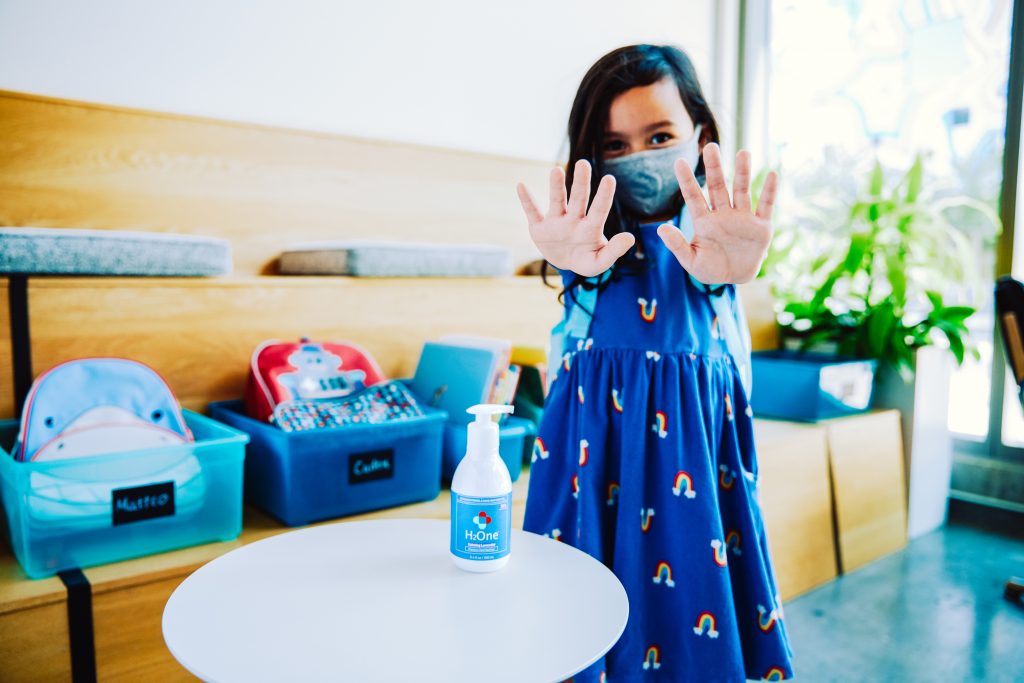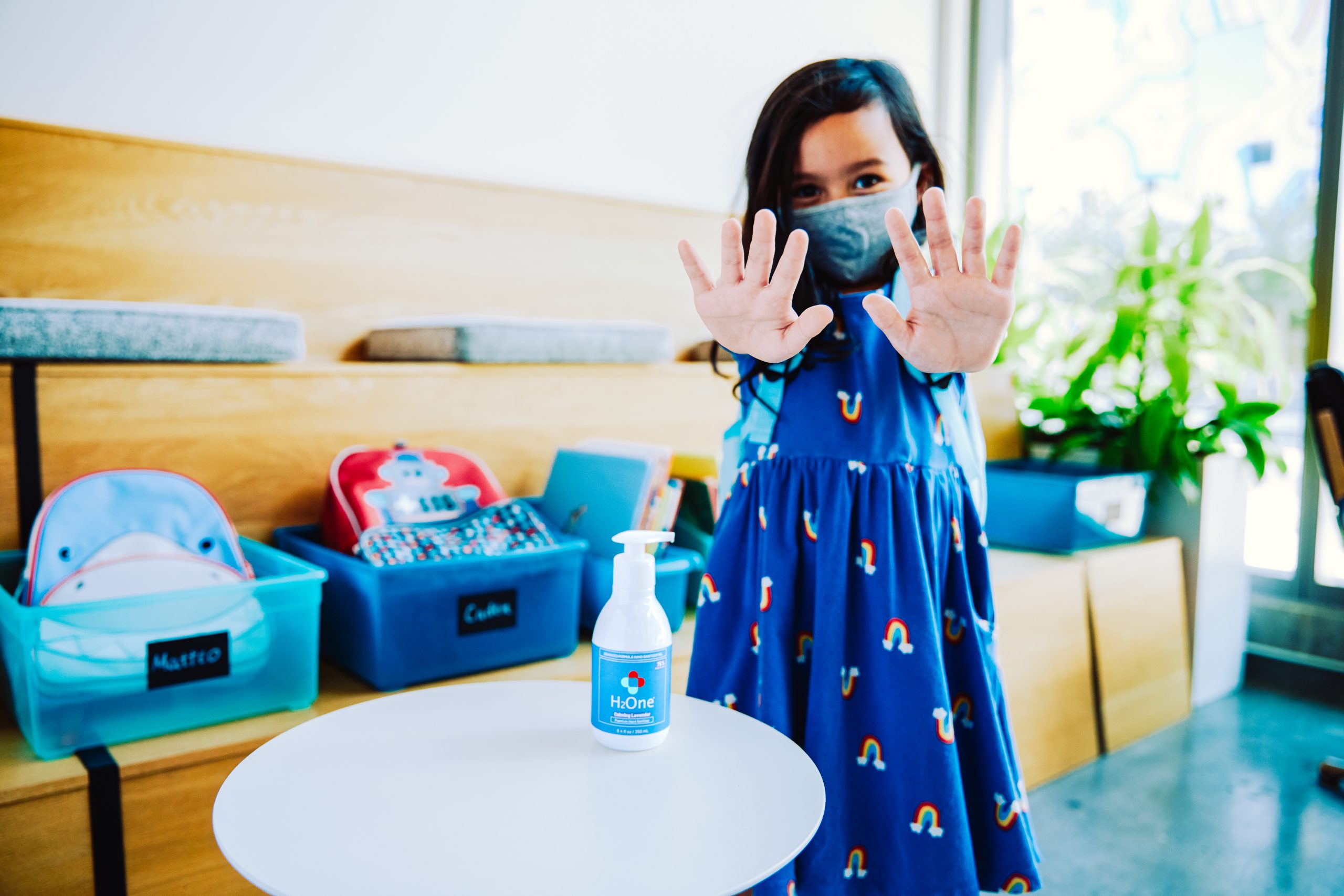As hand sanitizer bottles fly off the shelves, adults and children alike are seeking comfort in the that clear liquid said to eradicate 99.9% of germs when traditional water and soap are not close at hand. Truthfully, it’s hard to avoid the need to pump when hand sanitizer its rightfully all around us… at stores, checkout counters, in our purses, hanging from kids’ backpacks, in the car, etc.
As sanitization becomes a part of our everyday ritual, social media feeds are becoming filled with questions about the often foul smell from the gel, are all hand sanitizers the same, is it safe to use often, what ingredients should we look for, etc. Thankfully, this mama bear went straight to the source to get answers from an expert, Co-Founder and CEO of H2One Alfred Zaccagnino.
Take a closer look at this revealing interview that crushes the myths behind the labels on the bottles, what’s normal and what’s a hazard in shopping for your bottles, why some hand sanitizers smell so bad that you almost feel dizzy after using them, and much more.
- When are the most important times to use hand sanitizer throughout the day?
Zaccagnino: Before eating, and after coughing, sneezing, or coming into contact with one’s nose.
- What are some of the top considerations that shoppers must keep in mind when selecting a hand sanitizer?
Zaccagnino: High content of ethyl alcohol 62% or higher for WHO and CDC standards to clean hands. In addition, hand sanitizer can be drying, so always look for a hand sanitizer that has Vitamin E and Aloe Vera as well as essential oils.
- Why do most hand sanitizers have such a foul odor? Are all of them the same?
Zaccagnino: Many hand sanitizers that have a foul odor are not using USP grade ethanol with proper carbon filtering, so methanol residuals may remain which can cause the product to have a foul odor.
- Are there any hand sanitizers that don’t excessively dry out the skin?
Zaccagnino: Yes. H2One!
- Are all hand sanitizers made the same? What’s the difference? What should consumers look out for?
Zaccagnino: They are not all made the same. Hand Sanitizers contain different active ingredients as well as different amounts of that active ingredient. H2One highly recommends that consumers do their research to ensure the hand sanitizer brand practices quality control and is highly researchable.
- Is there such a thing as using hand sanitizers too much?
Zaccagnino: H2One recommends that a consumer utilize their hand sanitizer in moderation and as needed for clean hands.
- What are some common misconceptions about hand sanitizing?
Zaccagnino: In my opinion, I don’t believe in the hand sanitizers who claim to kill 99.9% of germs. I believe such verbiage on the bottle is a marketing ploy.
- Is it ok to leave a hand sanitizer bottle in the car? Does heat impact the formulation or effectivity of the product?
Zaccagnino: Per the FDA, Hand sanitizer should be stored out of reach, and sight, of children. It should not be stored above 105°F (for example, hand sanitizer should not be stored in a car during the summer months or extreme heat conditions).
- Does hand sanitizer expire?
Zaccagnino: Most hand sanitizers have an expiration date of 3 years.
- What is the proper way to put on hand sanitizer? How many pumps or drops should a child vs. adult use?
Zaccagnino: Adults and kids should always practice reading the label on each hand sanitizer bottle. For kids’ applications, please view this educational video that H2One created prior to kids heading back to school. https://www.youtube.com/watch?v=VeW69Pu15x0
For more information about H2One Hand Sanitizer and their Giving Back Program visit https://h2one.com

